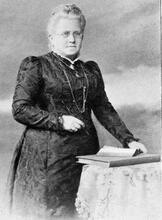Kinnim (Tractate)
Tractate Kinnim (“nest” or “birds in a nest”), the last tractate in Order Kodashim (Holy Things), deals with the smallest type of sacrifice, a pair of turtledoves or young pigeons—one nest, hence the title. Women are at the center of the laws in Kinnim, as they were the ones most frequently obligated to bring those sacrifices.
The Bird Offering
Tractate Kinnim (“nest” or “birds in a nest”), the last tractate in Order Kodashim (Holy Things), deals with the smallest type of sacrifice, a pair of turtledoves or young pigeons—one nest, hence the title. Scripture terms this type of sacrifice a bird offering, and it is divided into obligatory and voluntary offerings. This sacrifice is obligatory on the male who has a discharge from his body (zav), on the woman who has one (zavah) (Leviticus 15:14–15; 29–30) and on the nazirite (Nazirite; person who vows to abstain for a specific period (or for life) from grape and grape products, cutting his hair, and touching a corpse.nazir) (Numbers 6:10–11). According to Leviticus 12:6–8, a woman who has just given birth waits until her period of purification has passed and then brings a sin-offering termed oleh ve-yored, or “wave-offering.” If she has the financial means she brings an animal as a sacrifice; if she is poor she offers a pair of young pigeons or turtledoves, the first serving as a burnt-offering (olah) and the second as a sin-offering (hatat). A leper (mezora) who has recovered brings a wave-offering, as do those who have committed various types of transgressions (Leviticus 5:1–10). This type of sacrifice also serves as a voluntary sacrifice for anyone who made a vow to offer it (Leviticus 1:14–17). In short, it appears fairly frequently and is made by men and women alike. Nevertheless, it has special relevance for women.
Language in Kinnim
The Hebrew language has a distinct bent toward the masculine form and a tendency to cite examples from the world of men; in the majority of cases the Codification of basic Jewish Oral Law; edited and arranged by R. Judah ha-Nasi c. 200 C.E.Mishnah uses the masculine gender in its laws and discussions. Tractate Kinnim differs in this respect; most of its The legal corpus of Jewish laws and observances as prescribed in the Torah and interpreted by rabbinic authorities, beginning with those of the Mishnah and Talmud.halakhic examples are in the feminine. Thus it cites two women who made offerings (1:3–4), confusion in sacrifices (“Thus if two women …,” 2:2) and “If a woman said” (3:6). In the three chapters of the tractate, six paragraphs use masculine wording with reference to general ruling, while eleven use the feminine and include examples of women bringing offerings.
Presumably this unusual arrangement reflects the reality of sacrifices in the Temple. Women comprised most of all those obligated to bring bird-offerings, thus becoming the standard example of the laws concerning this type of sacrifice. On the one hand, women chose this small, relatively inexpensive type of offering rather than larger, more expensive ones, while on the other, they were extremely careful to bring an offering after giving birth. Women bringing this type of offering regularly filled the Women’s Court.
The literary character of the tractate links with a brief item from the time of Rabban Simeon ben Gamliel (first century CE).
Once in Jerusalem a pair of doves cost a golden denar. Rabban Simeon b. Gamliel said: “By this Temple! I will not suffer the night to pass before they cost but a [silver] denar.” He went into the court and taught: “If a woman suffered five miscarriages that were not in doubt or five issues that were not in doubt, she need bring but one offering, and she may then eat of the animal-offerings; and she is not bound to offer the other offerings.” And the same day the price of a pair of doves stood at a quarter-denar each (Mishnah Keritot 1:7).
Because so many women made these offerings, the demand sent prices up. As soon as Rabban Simeon ben Gamliel ruled in the Houses of study (of Torah)bet midrash that women were not obligated to bring a pair of doves for every birth or miscarriage, the law of supply and demand led to a fall in prices. The form of the sage’s oath is interesting. He used the word ma’on, thus swearing by the Holy Temple that he would change its rules to allow women to participate in the Temple’s laws.














